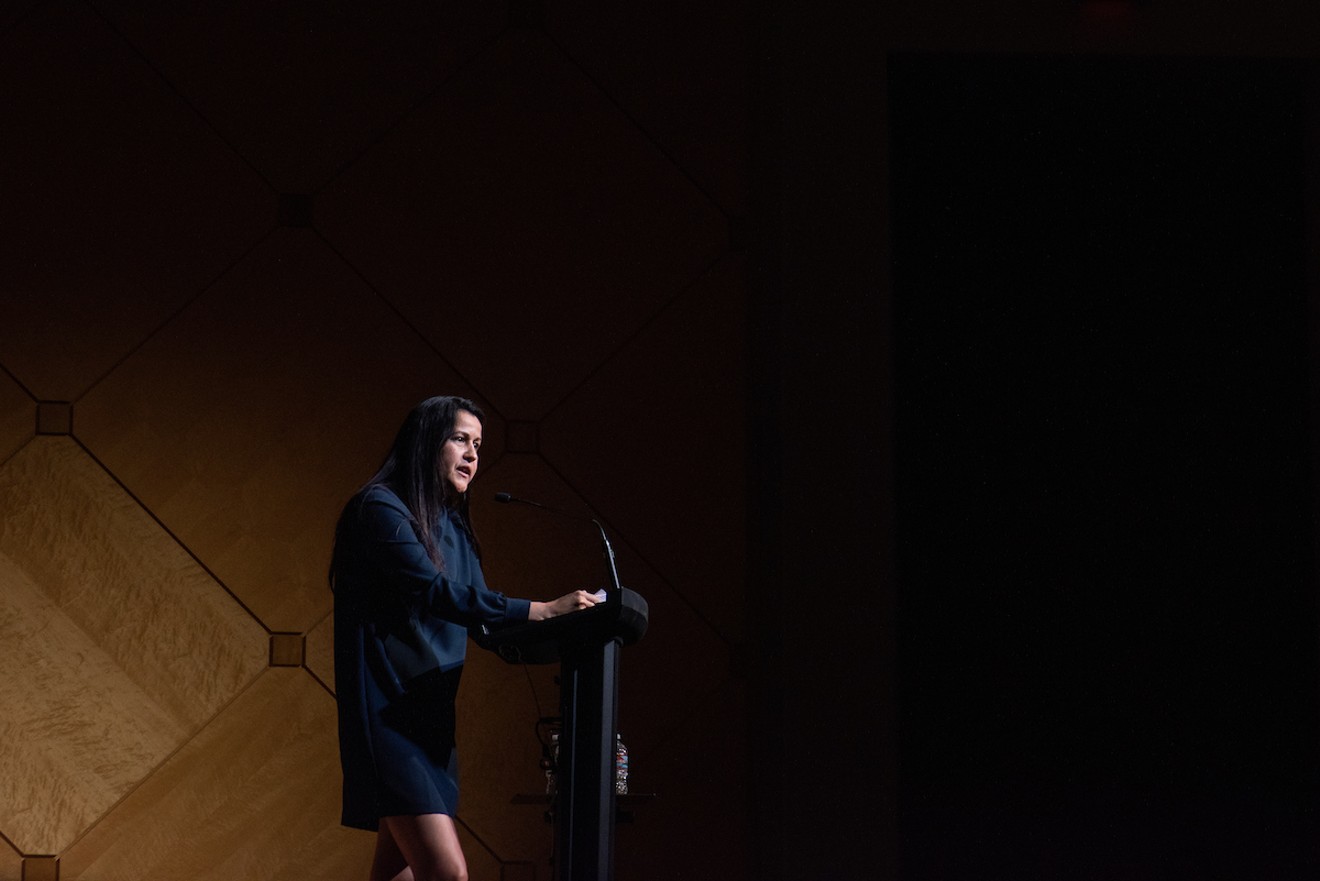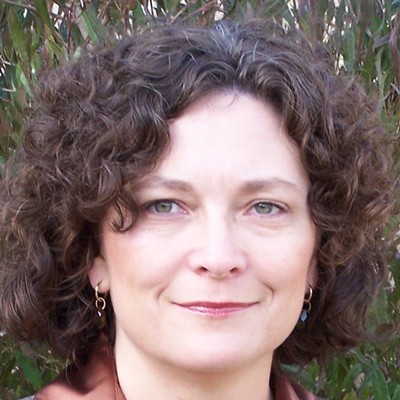An audible stir swept through the audience inside a music hall at ASU recently during a presentation by poet Natalie Diaz. Without naming its title, Diaz alluded to a book that’s drawn significant controversy in recent days.
The book was Jeanine Cummins’ American Dirt, which imagines the journey of a mother and her son migrating from Mexico to the U.S. Even as Diaz spoke, the hashtag #americandirt was blowing up on Twitter. And the audience clearly got her reference.
Oprah Winfrey had just chosen the title for her book club, and the public backlash was swift. Critics decried the book, citing concerns about stereotypes and cultural appropriation.
The timing was perfect, given the subject Diaz addressed that night. She was there to celebrate the launch of ASU’s Center for Imagination in the Borderlands. For Diaz, it’s a way to shift how stories get told, and who gets to tell them.
She describes the center as “an indigenous space at ASU where we can constellate stories, knowledges, and languages from across our many borderlands through conversation and performance.”
Diaz is the center’s founding director and part of the creative writing faculty at ASU. She is Mojave and an enrolled member of the Gila River Indian Community. In 2018, when Diaz was 40 years old, she received the prestigious MacArthur Fellowship, also known as a “Genius Grant.”
Her work often references her own identity — female, queer, Native, Mexican, and Latina. “It’s not easy to be the body I am,” she says.
Diaz set the tone that night by sharing the stage with several women, including MacArthur Fellows Ofelia Zepeda, a Tohono O’odham Nation poet, and Valeria Luiselli, the author of the best-seller Lost Children Archive.
The program also included Iranian-American poet Solmaz Sharif, White Mountain Apache musician Laura Ortman, and Deana Haggag, who heads the arts funding organization United States Artists.
Rather than accepting or merely reacting to the dominant narrative, Diaz is searching for new ways to address it. “The center believes in collaboration, and we are always looking for future collaborators,” she says.
During a series of readings, creatives revealed the broader definition of border at the heart of the center’s vision. Some borders are physical. Others represent systemic barriers that divide people and communities.
Following the readings, Diaz facilitated an informal conversation with guests who shared a couch on stage. Several had comments explaining the need for questioning or rejecting underlying assumptions.
“We have all lived for centuries in institutions that are very hierarchical,” Luiselli said. Think churches, banks, universities, and Congress. Each was created by men, she explained. And each has a very vertical power structure. Like others involved with the new center, Luiselli favors a “more fluid and horizontal” approach.
The Center for Imagination in the Borderlands joins an existing landscape of cultural creators using story and performance to foster new ways of and creating change. Others include the CALA Alliance, which collaborates with ASU Art Museum to bring Latinx and Latin American creatives Crescent Ballroom as part of a series called Crossfade LAB.
The Arizona desert is a particularly rich source of material. “Arizona is a crucible for the many questions we find ourselves asking locally, nationally, and globally,” Diaz says. As examples, she offers water, land, language, borders, immigration, race, extraction, art, surveillance technology, incarceration, and the body.
“Arizona is a space of tension, a tension that necessitates thoughtful action and innovation,” Diaz says. “The imaginations shaped in this desert and in these borderlands are capable of shaping and catalyzing the futures we believe we deserve.”
[
{
"name": "Air - MediumRectangle - Inline Content - Mobile Display Size",
"component": "18478561",
"insertPoint": "2",
"requiredCountToDisplay": "2"
},{
"name": "Editor Picks",
"component": "16759093",
"insertPoint": "4",
"requiredCountToDisplay": "1"
},{
"name": "Inline Links",
"component": "17980324",
"insertPoint": "8th",
"startingPoint": 8,
"requiredCountToDisplay": "7",
"maxInsertions": 25
},{
"name": "Air - MediumRectangle - Combo - Inline Content",
"component": "16759092",
"insertPoint": "8th",
"startingPoint": 8,
"requiredCountToDisplay": "7",
"maxInsertions": 25
},{
"name": "Inline Links",
"component": "17980324",
"insertPoint": "8th",
"startingPoint": 12,
"requiredCountToDisplay": "11",
"maxInsertions": 24
},{
"name": "Air - Leaderboard Tower - Combo - Inline Content",
"component": "16759094",
"insertPoint": "8th",
"startingPoint": 12,
"requiredCountToDisplay": "11",
"maxInsertions": 24
}
]













